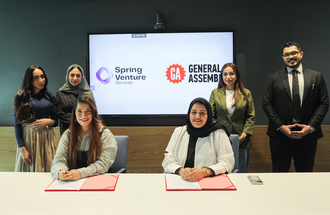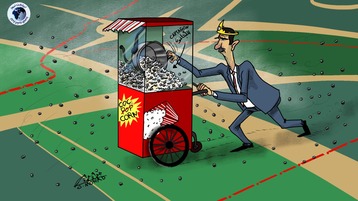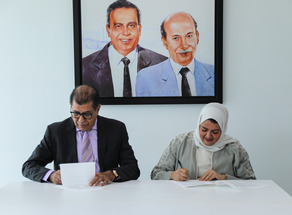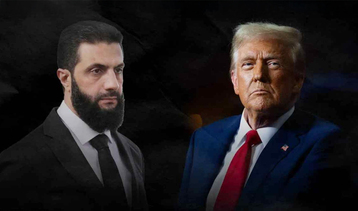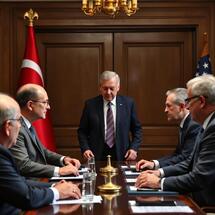-
The Syrian & Algerian regimes ... Two sides of the same coin
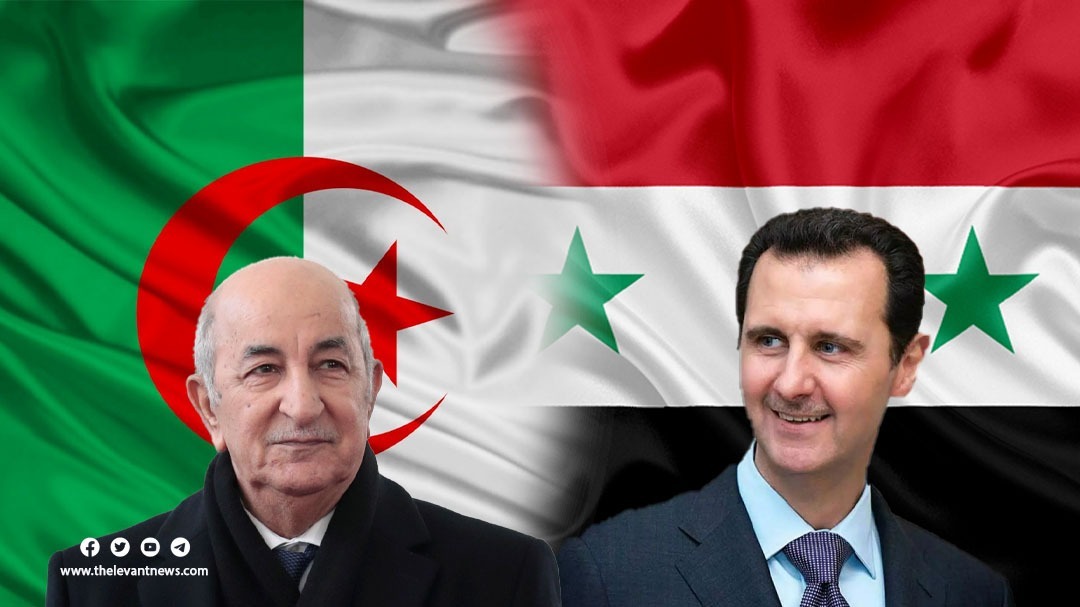
Arab regimes did not like the Arab Spring. Some of them dealt with it as a fait accompli, and others tried to keep it away so that the ruling class can keep its power and riches.
Since then, the Algerian regime has been taking precautions in case the Arab Spring came to Algeria which is drowning in corruption and whose wealth was stolen by its regime figures as Algeria is one of the biggest gas and oil exporters. Moreover, Algeria has been among the most corrupt Arab countries since the Arab Spring along with Syria, Somalia, Iraq and Libya.
After the fall of the oil price in 2014, Algeria experienced years of budget constraints and a currency crisis followed by national protests known as Hirak. In 2019, other protests sparked and made the army oust President Abdelaziz Bouteflika, in April 2019. However, the military generals still rule Algeria even after Abdelmadjid Tebboune assumed the presidency after Bouteflika as he is imposing the tyranny and police state he inherited from Bouteflika.
The Algerian regime did not only suppress the protest movement but also stood by the Syrian regime since the beginning of the Syrian revolution as it was against suspending the Syrian regime's membership in the Arab League Council in November 2011.
Unlimited support for the al-Assad regime
A Western diplomat, who preferred to remain anonymous, told Levant News that: "Algeria has not stopped supporting Bashar al-Assad's regime in Syria, and providing it with oil and energy sources since the beginning of the uprising in Syria until this day. Algeria is doing its best to restore the Syrian regime's relations with the Turkish government." He noted that President Tebboune's regime is trying to float al-Assad after all his killing and displacement of the Syrian people.
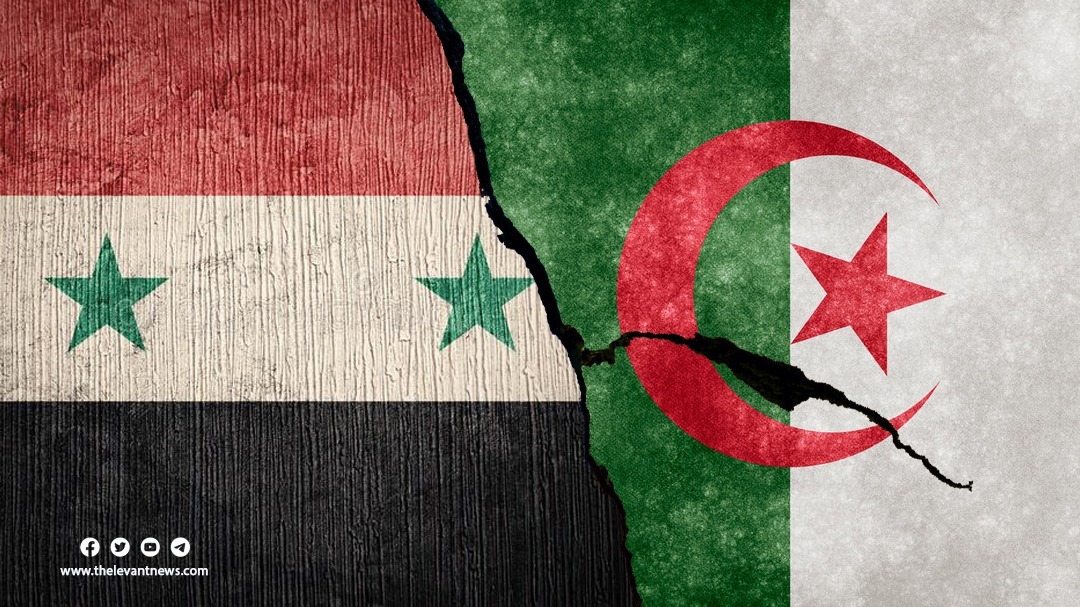
The Algerian dissident and head of the human rights organisation Shuaa, Rachid Aouine, said in an interview with Levant News that the Algerian regime has always been opposed to any change in the Arab region, especially Syria. "Instead of prosecuting those who murdered and betrayed the Algerians, such as General Mohamed Mediène, the former director of intelligence and also the former Defense Minister Khaled Nezzar, the military ruling class in Algeria along with the President honoured and awarded them on July 4 with the highest honours," he said. "The Algerian regime supports Bashar al-Assad's regime because it wants to prevent any change in the countries where the Arab Spring sparked. The Algerian generals do not only do this to Syria, but also they had a role in undermining the democracy in Tunisia as one of the Tunisian presidents told me after the revolution."
Alignment with Russia
Rachid Aouine said that After the Russian invasion of Ukraine, it became clear that Algeria chose to align with Russia and that is why Algeria demands the return of the Syrian regime to the Arab League, and Bashar al-Assad said that Algeria is the closest to us in the Arab world. However, the difficulties Algeria is going through are the best conditions for the military ruling class, which is made up of a diverse group of military personnel, secret service activists and elderly politicians, to impose its control.
Until recently, the Algerian Foreign Minister, Ramtane Lamamra, was visiting Damascus and providing support to the Syrian regime, in an attempt to float it and persuade Arab governments to accept Bashar al-Assad's attendance at the Arab summit, which is to be held in the Algerian capital in November.
Even before the conflict in Ukraine began, the Algerian regime seemed concerned that the rising global inflation, especially in food prices, might spark a new wave of protests all over the country.
In mid-February, President Tebboune issued a surprising announcement saying that Tax increases on some food products that were included in the 2022 budget will be frozen.
Besides raising the cash money the Alegrian treasury needs, the war in Ukraine has also raised the country's diplomatic status. On the other hand, the ambiguous way the old military generals deal with foreign powers and their inability to implement economic and political reforms have established Algeria's reputation as a kind of pariah state, despite its importance as an energy producer and its strategic importance in dealing with the instability in the Sahel region.
Intelligence crisis in the Algerian intelligence service
The human rights activist, Anwar Malek, previously revealed in his programme on his YouTube channel that there are major conflicts within the Algerian intelligence service, there is no coordination on several issues and there is an internal struggle between the officials to have the sensitive issues for themselves to deal with.
"President Abdelmadjid Tebboune and Lieutenant-General Saïd Chengriha, Chief of Staff of the People's National Army, launched an initiative to contain differences and bring the security apparatus together to thwart. The security conflict lies between the Internal Security Agency and leaders in the army and the old military," he added, quoting his own sources in Algeria
President Tebboune takes into account the interests of both sides and raises the ranks of the influential people in the intelligence apparatus to have them for his side. Malik showed how much big the conflict between the parties is and which could be directly reflected on the Algerian president because of his iron grip on security. He also talked about the role played by the Algerian intelligence in running after the opponents of the regime abroad and killing some of them to make them not participate in Algerian political life. Malik adds that Tebboune is interested in maintaining internal security and protecting himself from any threats that might come from his opponents abroad.
You May Also Like
Popular Posts
Caricature
BENEFIT Sponsors BuildHer...
- April 23, 2025
BENEFIT, the Kingdom’s innovator and leading company in Fintech and electronic financial transactions service, has sponsored the BuildHer CityHack 2025 Hackathon, a two-day event spearheaded by the College of Engineering and Technology at the Royal University for Women (RUW).
Aimed at secondary school students, the event brought together a distinguished group of academic professionals and technology experts to mentor and inspire young participants.
More than 100 high school students from across the Kingdom of Bahrain took part in the hackathon, which featured an intensive programme of training workshops and hands-on sessions. These activities were tailored to enhance participants’ critical thinking, collaborative problem-solving, and team-building capabilities, while also encouraging the development of practical and sustainable solutions to contemporary challenges using modern technological tools.
BENEFIT’s Chief Executive Mr. Abdulwahed AlJanahi, commented: “Our support for this educational hackathon reflects our long-term strategic vision to nurture the talents of emerging national youth and empower the next generation of accomplished female leaders in technology. By fostering creativity and innovation, we aim to contribute meaningfully to Bahrain’s comprehensive development goals and align with the aspirations outlined in the Kingdom’s Vision 2030—an ambition in which BENEFIT plays a central role.”
Professor Riyadh Yousif Hamzah, President of the Royal University for Women, commented: “This initiative reflects our commitment to advancing women in STEM fields. We're cultivating a generation of creative, solution-driven female leaders who will drive national development. Our partnership with BENEFIT exemplifies the powerful synergy between academia and private sector in supporting educational innovation.”
Hanan Abdulla Hasan, Senior Manager, PR & Communication at BENEFIT, said: “We are honoured to collaborate with RUW in supporting this remarkable technology-focused event. It highlights our commitment to social responsibility, and our ongoing efforts to enhance the digital and innovation capabilities of young Bahraini women and foster their ability to harness technological tools in the service of a smarter, more sustainable future.”
For his part, Dr. Humam ElAgha, Acting Dean of the College of Engineering and Technology at the University, said: “BuildHer CityHack 2025 embodies our hands-on approach to education. By tackling real-world problems through creative thinking and sustainable solutions, we're preparing women to thrive in the knowledge economy – a cornerstone of the University's vision.”
opinion
Report
ads
Newsletter
Subscribe to our mailing list to get the new updates!

